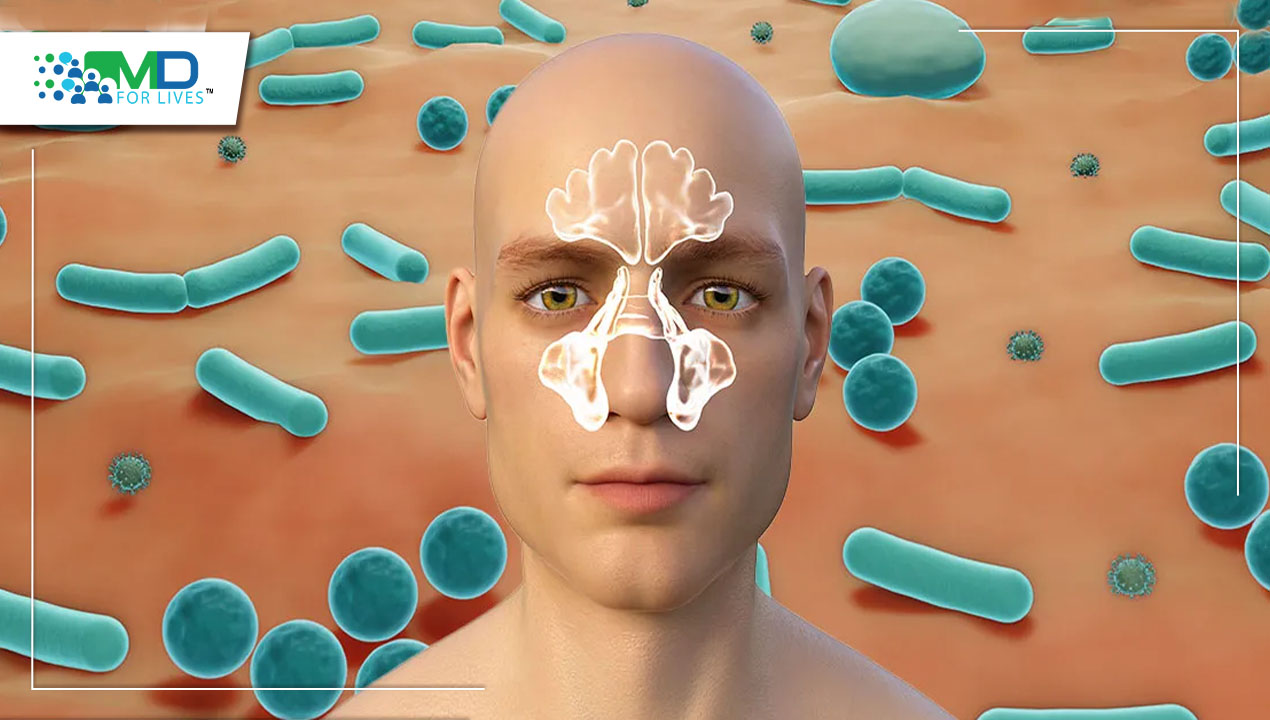Asthma affects around 334 million individuals around the world. Allergic asthma (AA) is linked to allergic rhinitis (AR) because of the similarities in the upper and lower airways. AR is an allergic airway disorder frequently accompanied by AA.2 AR was found to be present in 2~25% of children and 10~40% of adults worldwide.
Understanding the characterization, microbiota, and potential role of probiotic intervention in respiratory tract allergies such as AA and AR can benefit healthcare professionals. A recent study provides an overview of probiotics concerning AA and AR and changes in gut microbiota.
How was the research carried out?
The researchers conducted a systematic literature search that included observational studies (cross-sectional, cohort, or case-control) and experimental studies to discuss the effect of probiotics on respiratory tract allergy illness and gut microbiota.
Atopic dermatitis, food allergies, intestinal problems, and respiratory microbiota were employed as exclusion criteria to eliminate probably correlated comorbidities.
Using the key phrases, the team conducted searches in PubMed, Google Scholar, and Medline. Studies from all years were considered, emphasizing those published in the last 10 years.
Treatment options for Allergic Asthma and Rhinitis
Asthma is caused by a mix of hereditary and environmental variables that are poorly understood. By using genome-wide association, researchers have mapped the effects of single nucleotide polymorphisms (SNPs) on the presence of childhood-onset asthma.
Inhaled corticosteroids, oral corticosteroids, and glucocorticoids are currently used to treat asthma. However, they are ineffective in curing the fundamental cause, and the high medical costs can be financially demanding.
Avoiding allergens, using H1-antihistamines or intranasal corticosteroids, and allergen-specific immunotherapy (AIT) are all treatment options for AR. However, drugs for allergic rhinitis (such as histamine antagonists) might have adverse side effects like weariness.
Commensal gut microbiota and early immunity
The commensal gut microbiota influences immunity. Microbes populate the body’s mucosal surfaces from infancy onward, triggering the creation of immunological homeostasis and defense systems.
What role does gut microbiota play in allergic conditions?
Early gut microbiota colonization affects immune status during childhood, and early gut microecological dysregulation due to various factors (mode of delivery, feeding practices, antibiotic use, environmental exposure, etc.) may disrupt homeostatic regulatory mechanisms between T helper 1/ T helper 2 (Th1/Th2) cells, which may negatively affect immune tolerance development and eventually trigger the allergic reaction process, increasing the risk of allergy.
The gut microbiota is essential in the maturation of the postnatal immune system, particularly in immunological tolerance. In addition, by working on intrinsic and adaptive immunity, the gut microbiota protects the host from allergic responses.
Do AA and AR alter gut microbiota?
According to several research articles, a reduced quantity of gut bacteria, such as Bifidobacterium species, has been linked to an increased risk of allergy diseases in children. In addition, other pro- and anti-inflammatory metabolites, such as biogenic amines (including histamine) and oxylipins, have recently been discovered in the human gut microbiota. The number of histamine-secreting bacteria in asthma sufferers’ feces was substantially higher than in non-asthmatic volunteers.
Recent research suggests that a higher bacterial ratio between Klebsiella (an opportunistic pathogen) and Bifidobacterium (commensal bacteria of the gut microbiota) may predispose them to allergic diseases; however, other research suggests that using probiotics in infants may favorably alter this ratio and prevent the development of allergic diseases in the future.
What can be the potential benefits of probiotics in allergic diseases?
According to clinical and laboratory evidence, probiotics have a therapeutic effect on allergic diseases by modifying gut microbiota and influencing host immunity, promoting the maintenance of standard immunological tolerance.
How do probiotics work?
In both mice and humans, probiotics can increase the expression of adhesion molecules and stimulate the innate immune system, antigen-presenting cells (APC), and natural killer (NK) cells. In addition, probiotics promote adaptive immunity, resulting in the production of immunoglobulin G (IgG) and Immunoglobulin A (IgA) antibodies in response to probiotic ingestion.
A variety of immunopathogenic diseases, including AA and AR, are mediated by insufficient probiotic bacteria alone or insufficiency combined with immune system stimulation by invasive pathogens.
What is the effect of probiotics on the regulation of AR?
In a recent animal study, researchers looked into the effects of oral administration of Bifidobacterium (B. breve) in AR. They discovered that B. breve suppresses type II helper T cell immunological responses while increasing CD4+CD25+ regulatory T (Treg) cell activity. Another animal study found that using a probiotic mixture (PM) of Bifidobacterium longum IM55 and Lactobacillus plantarum IM55 isolated from human feces and kimchi to treat AR by repairing Th2/Treg imbalance and gut microbiota problems could help to reduce AR.

Effect of probiotics on allergic rhinitis
In a randomized, double-blind, placebo-controlled study involving 40 children from around the world, researchers discovered significant improvements in allergic rhinitis symptoms and quality of life in children given a probiotic mixture (Bifidobacterium longum BB536, Bifidobacterium infantis M-63, and Bifidobacterium shortum M-16V), with all parameters significantly better than the placebo group.
What effects do probiotics have on the regulation of AA?
Many animal and human clinical trials have shown that probiotic supplementation during the prenatal and postnatal periods is expected to play an important role in asthma prevention. As a result, probiotic supplementation could be a novel approach to preventing and treating allergy disorders.

Effect of probiotics on allergic asthma
Lactobacillus paracasei L9 was given to OVA-induced acute asthma mice, and researchers discovered that it reduced airway hyperresponsiveness and the proportion of eosinophils in bronchoalveolar lavage fluid by rectifying the Th2/Th1 immunological imbalance in the mice’s lungs, thus relieving asthma.
What does the future hold for probiotics in the treatment of respiratory allergies?
Probiotics reduced allergen-induced hyperreactivity and inflammation, as well as cytokine release. While probiotics did not completely remove allergies, they did help to lower the frequency and duration of allergy symptoms. On the other hand, probiotics’ effects depend on their species or strain, their metabolites, and the patient’s gut microbiota.
Even though multiple studies have been undertaken, more fundamental and human investigations are needed to confirm the role of probiotics in allergy treatment. Most recent research in the clinic has discovered preliminary effects of probiotics in treating allergic disorders. Patients should be included in future trials, and probiotic delivery should be standardized, so that sound data and precise information about the therapeutic benefits of probiotics can be provided to healthcare professionals. Nevertheless, probiotics’ use in treating respiratory allergic disorders appears to be promising.

MDForLives is a global healthcare intelligence platform where real-world perspectives are transformed into validated insights. We bring together diverse healthcare experiences to discover, share, and shape the future of healthcare through data-backed understanding.






